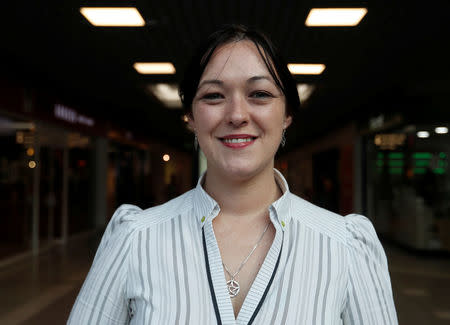Scotland may give Labour another chance at British power
By Elisabeth O'Leary
GLASGOW, Scotland (Reuters) - Britain's opposition Labour Party is poised for a resurgence in Glasgow, raising its hopes that a recovery from a disastrous election performance in Scotland two years ago can help its socialist leader Jeremy Corbyn win power in London.
A Labour stronghold for decades until it rejected the party in 2015 in favour of the pro-independence Scottish National Party (SNP), Scotland's largest city is showing signs of returning to its political roots.
With a 41.5 percent share of the overall British vote in recent opinion polling, Corbyn sees himself positioned to form a government if Prime Minister Theresa May's divided Conservatives falter over Britain's exit from the European Union.
Winning back some of Scotland's 59 parliamentary seats is key to his plan. With this in mind, Corbyn toured target Scottish constituencies after June's national election left May's Conservatives severely weakened.
"There are still many people who need to be persuaded to put their trust in the Labour Party once again," Corbyn told a meeting in the Highlands ski-resort of Aviemore last month. "But this is the beginning of the rebirth of Scottish Labour."
Scotland, where the SNP lost seats to Labour in the west and to the Conservatives in the northeast in June, is shaping up to be a major battleground in the next British election, due in 2022.
Labour winning in Glasgow, a city of one million people that backed secession from Britain in a referendum in 2014, would make the arrival of Prime Minister Corbyn more likely and reduce the chances of Scottish independence by damaging the SNP.
Labour policies, such as renationalistion of the railways and more funding for public services, appeal to Scots on the left though they may scare off more conservative voters with higher taxes and controls over the free market.
Scottish Labour announces a new leader on Saturday, after a contest between trade unionist Richard Leonard, whom many see as favourite because his views align with Corbyn, and more centrist Anas Sarwar, the Glasgow-born son of the UK's first elected Asian lawmaker.
PUBLIC SECTOR WORRIES
Margaret Young, a 50-year-old nurse, lives in Glasgow East, a central district which, until the 1960s, was an industrial powerhouse and is now one of Scotland's poorest areas. Once the site of massive steel-works it is home to a shopping centre called "The Forge," and around half of residents here are classed by the government as income-deprived.
In June, Young switched her vote to Labour from the SNP, because she thinks Corbyn will loosen the government's purse strings. The SNP held Glasgow East by just 75 votes, down from 10,000 two years ago.
Young blames May's Conservatives in London for poor public services and the SNP for failing to mitigate spending cuts.
"Austerity is definitely what is hurting us," she told Reuters, saying it was "disgusting" that struggling families on welfare were being penalised.
Of a dozen people interviewed by Reuters in East Glasgow, 10 said they would vote for Labour or consider it seriously.
East Glasgow and seven other seats in the Glasgow area are among 21 Scottish constituencies held by the SNP that would need a swing of less than 5 percent for a Labour win, according to pollster Survation.
At present Labour has 7 Scottish seats. With just a handful more votes in each marginal area, Scotland could make the difference between a minority and a majority Labour government in Britain's 650-seat House of Commons.
As most of Scotland's budget is controlled by the government in London, Young believes only Corbyn can bring real change.
Scots like Young now seem to blame the SNP, in power in the devolved Scottish parliament for a decade, rather than the UK government in London for not sending enough money to Scotland.
HISTORY OF RADICALISM
Glasgow, an industrial centre on Britain's northwestern coast, was a hub of left-wing radicalism and a lynchpin of Labour's political success nationwide for nearly a century. Under Tony Blair and Gordon Brown, the party took a centrist direction and Labour started to fall out of favour in the north.
Labour was spurned by Scottish voters when it campaigned with the rival Conservatives to defend the 300-year-old union of England and Scotland in the 2014 referendum. Scots rejected independence, but in a British election eight months later, Labour lost all but one of its 41 seats in Scotland.
"A lot of people who voted "Yes" during the referendum did so because they wanted a sense of change," said Kate Watson, the Labour candidate in Glasgow East. "Jeremy's given us permission to be heard again."
Corbyn avoids mention of Blair and Brown and namechecks Labour's first leader Keir Hardie as a mentor, appealing to old party values which play well here.
Rebecca Hynam, 30, is a primary school teacher who says politicians would be "shocked" by shortages of staff and materials in schools. She backs Corbyn.
"In maths, we don't have enough calculators for my class."
Glaswegians interviewed seemed to overlook the weaknesses of Scottish Labour: its flip-flops on the independence question and its wobbles on what it wants from Brexit.
Nevertheless many trust Corbyn, whose personal style reminds some people of a kindly schoolteacher, to make amends. One is Andrea, a 55-year-old secretary who voted Labour for the first time in June.
"He seems like a neighbour next door, that's what I like about him. He seems to speak from the heart."
(Reporting by Elisabeth O'Leary; editing by Giles Elgood)


